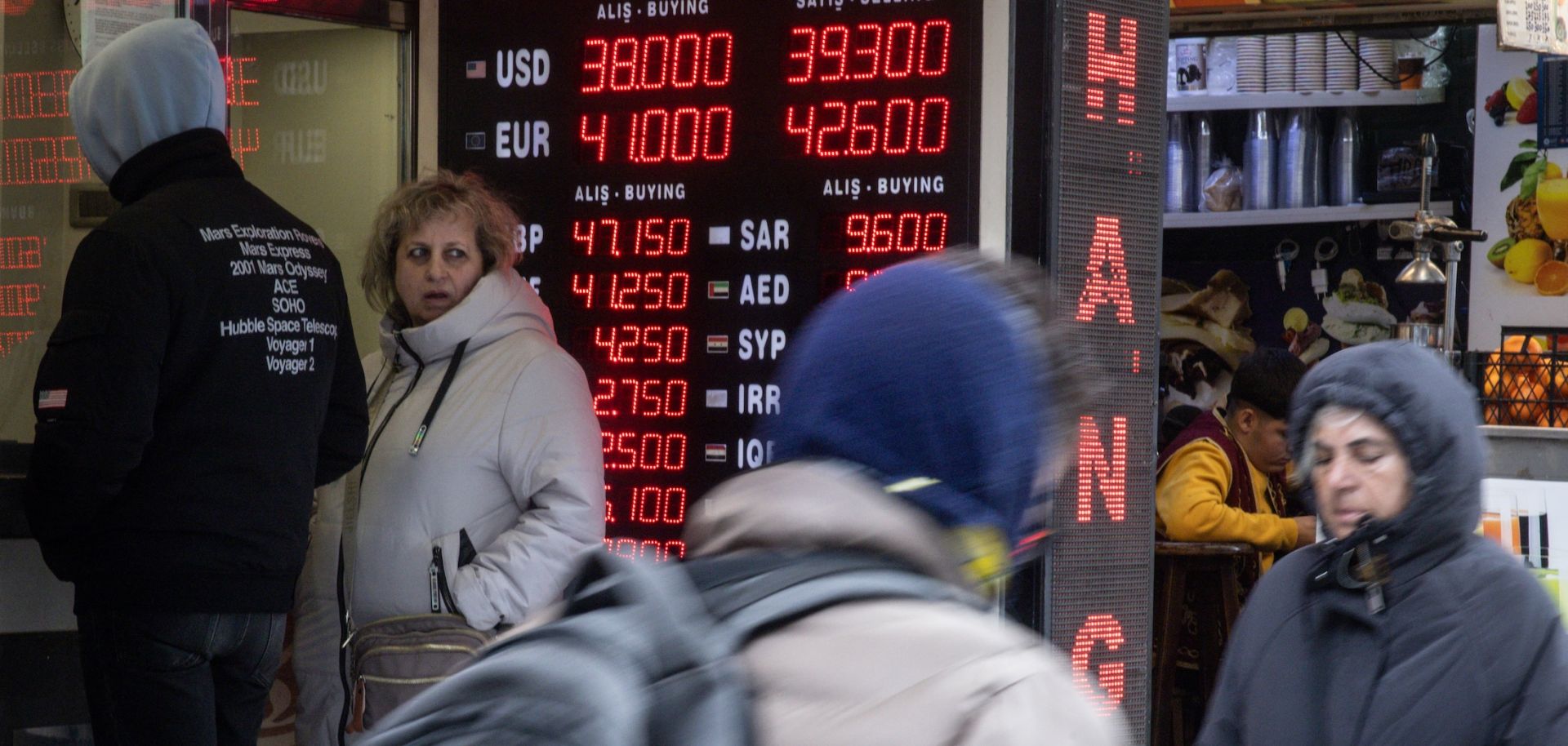Turkey's policy of stabilizing the lira's exchange rate amid widespread protests may not prove sustainable and could force Ankara to allow for a significant depreciation, which would prove unpopular by leading to higher inflation and/or interest rates. The March 19 arrest of Istanbul mayor Ekrem Imamoglu -- a key rival of Turkish President Recep Tayyip Erdogan ahead of the 2028 presidential election -- has triggered widespread pro-democracy protests in major cities across Turkey over the past week. The political crisis has also rattled markets by injecting more uncertainty into the country's economic and financial outlook, which has led to a surge in capital outflows. Instead of letting the Turkish lira's exchange rate adjust, the central bank has decided to stabilize the currency by selling a significant amount of foreign exchange reserves. But this is a high-risk strategy, as continued capital outflows eventually overwhelm the bank's ability to maintain exchange rate...

